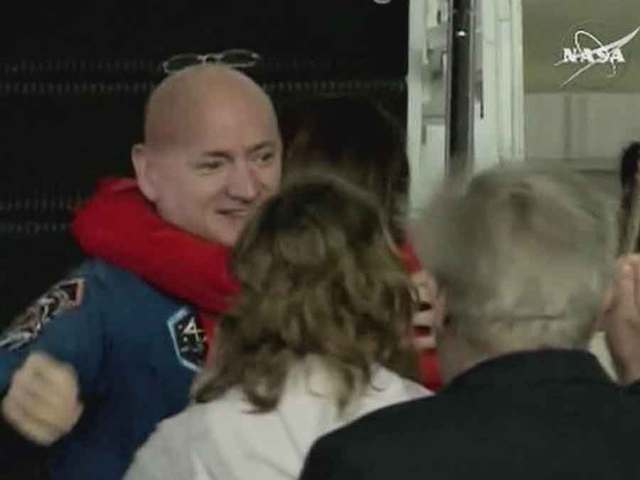-
Tips for becoming a good boxer - November 6, 2020
-
7 expert tips for making your hens night a memorable one - November 6, 2020
-
5 reasons to host your Christmas party on a cruise boat - November 6, 2020
-
What to do when you’re charged with a crime - November 6, 2020
-
Should you get one or multiple dogs? Here’s all you need to know - November 3, 2020
-
A Guide: How to Build Your Very Own Magic Mirror - February 14, 2019
-
Our Top Inspirational Baseball Stars - November 24, 2018
-
Five Tech Tools That Will Help You Turn Your Blog into a Business - November 24, 2018
-
How to Indulge on Vacation without Expanding Your Waist - November 9, 2018
-
5 Strategies for Businesses to Appeal to Today’s Increasingly Mobile-Crazed Customers - November 9, 2018
Astronaut Scott Kelly returns to the US
NASA astronaut Scott Kelly hugs his daughters in Houston on March 3, 2016, after coming home from a 340-day mission aboard the International Space Station.
Advertisement
Cheers and lots of applause for the return of NASA Astronaut Scott Kelly after spending 340 days in space.
Second Lady of the United States Dr. Jill Biden, Assistant to the President for Science and Technology Dr. John P. Holdren, NASA Administrator Charles Bolden, and Kelly’s identical twin brother and former NASA astronaut Mark Kelly will be in Houston to welcome Kelly home. Kelly and Kornienko specifically conducted studies for NASA’s journey to Mars.
So what can a year in space do to the human body? Upon landing, Scott Kelly could be seen pumping his fist and giving a thumb up sign as he emerged from the Soyuz.
Clearly animated and looking well, he said he didn’t feel much different than he did after his five-month station mission five years ago.
Houston will be home for Scott Kelly for awhile, as he will be undergoing weeks and months of physical, biological and mental tests, according to NASA.
The astronaut said it felt like a lifetime in space, but he was determined to go the distance. Before sending a manned mission to Mars, NASA plans to initiate more year-long missions before the Mars expeditions, which are now set to begin in the 2030s.
But today, researchers have helped mitigate the impact on bones and muscles by implementing extensive workout routines that astronauts carry out while in space.
Kornienko and Kelly both had the longest stays aboard the International Space Station.
His words should speak loud to the leaders of our country about the dedication to exploring space, at great risk and even loss of life at times as history has proven.
As for his space legacy, Mr Kelly said he and Mr Kornienko “were a small part” in setting the stage for Mars.
“A year is a long time”, Kelly said.
While in space, the cardiovascular system does not have to work as hard as it does on Earth. One effect of the redistribution of fluids is that many astronauts have a puffy face while in space.
There is also a concern that space radiation may affect endothelial cells, the lining of blood vessels, which might initiate or accelerate coronary heart disease.
The research also involves seeing how Scott Kelly has changed during the flight.
Advertisement
Upon return to Earth, they must readjust to Earth’s gravity and can experience problems standing up, stabilizing their gaze, walking and turning.




























